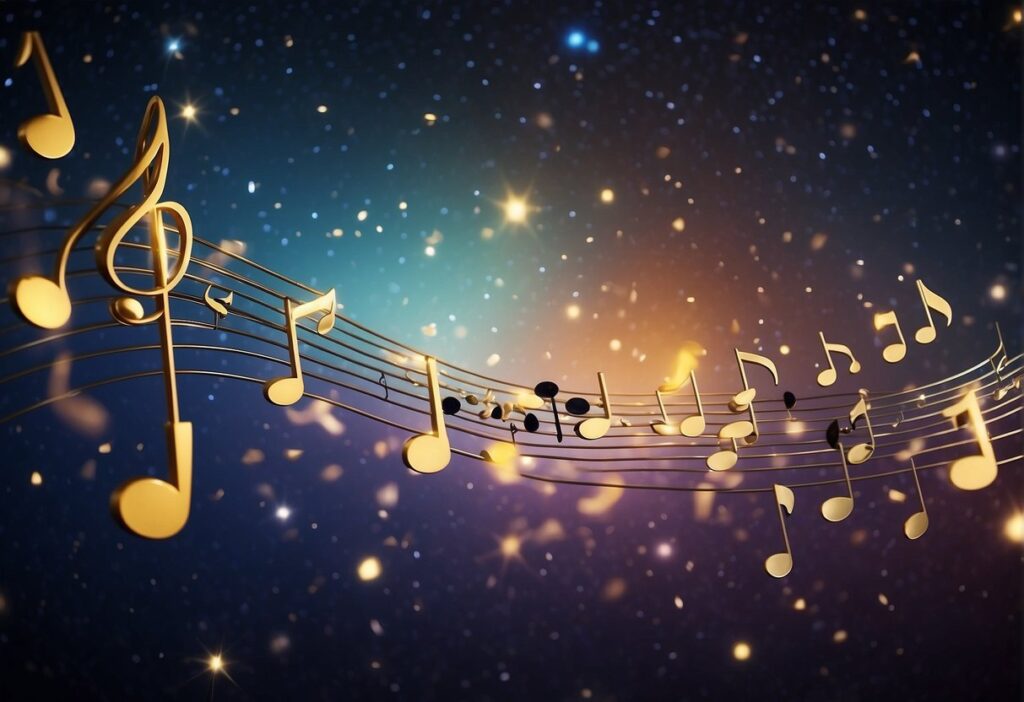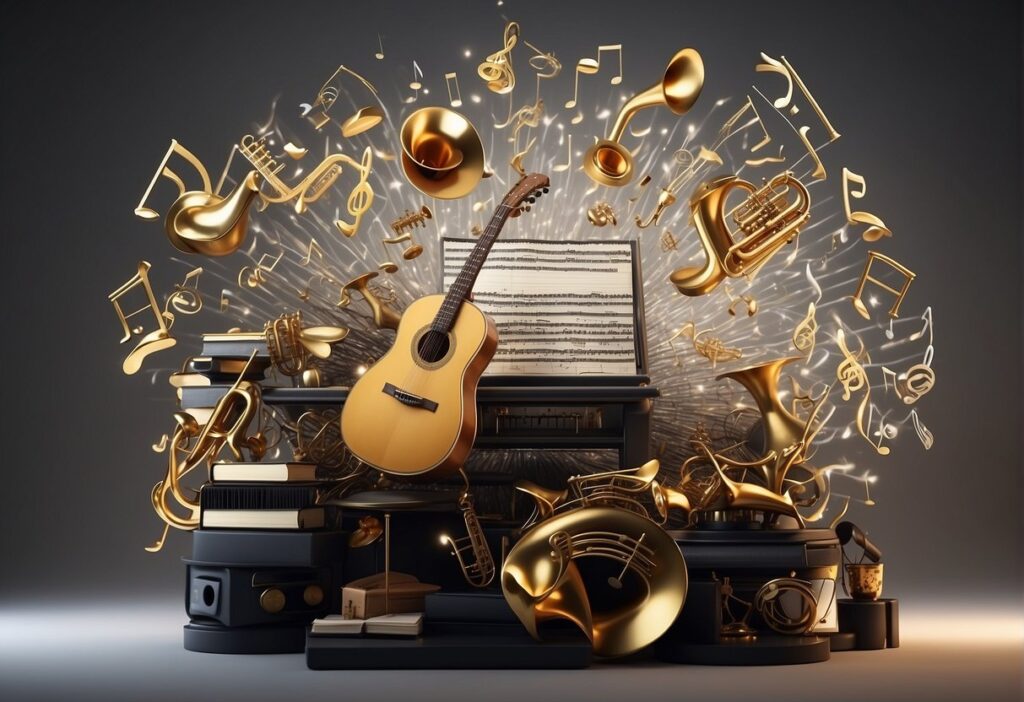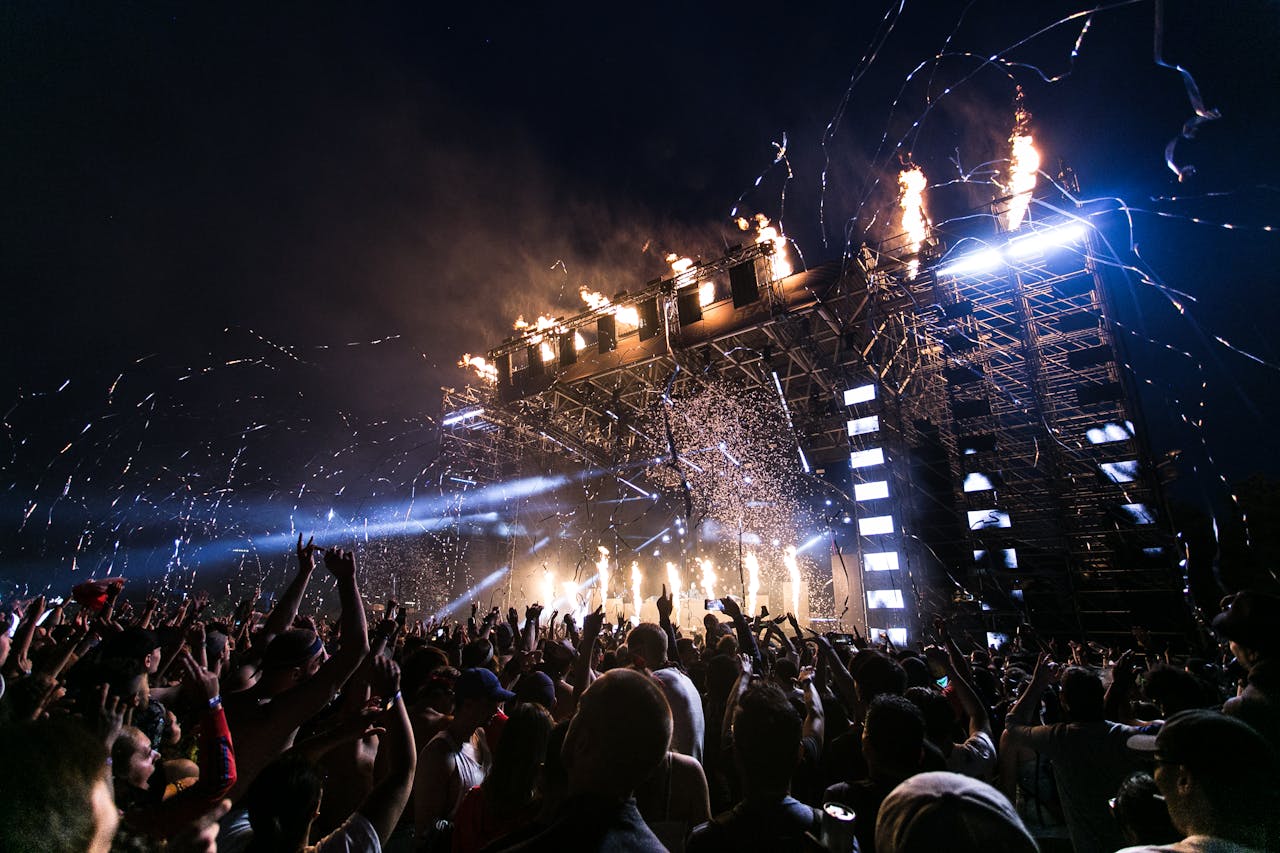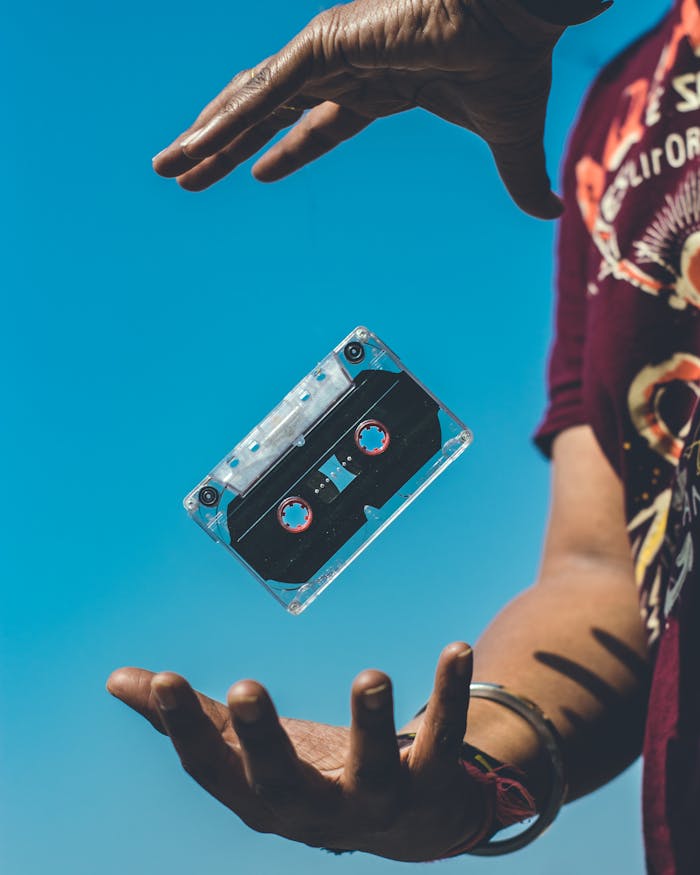Dreams About Music: Unpacking the Soundtrack of Your Subconscious
I’ve always found that dreams have a special way of intertwining with the music we hold dear. When we dream, pieces of melodies and echoes of lyrics often weave through the narratives our subconscious cooks up.
These auditory experiences aren’t just random; they reflect the symphony of emotions and memories that music stirs within us. For me, the tunes that pop up in my dreams are like a soundtrack to my inner thoughts and feelings—sometimes they’re songs I love, and other times, it’s as if my mind is composing its own original score.

How many of us have woken up with a song stuck in our head, vivid as if we were just at a live concert or in a session with favorite musicians, and realized it was all just a dream? These auditory illusions are a unique form of creative expression.
Dreams about music can be incredibly vibrant and telling; they often highlight the role of music as a powerful channel for our emotions. For artists and musicians, these dreams can be a space for creative exploration or even inspiration for new work, perhaps an ethereal melody that demands to be brought to life upon waking.
Sometimes, it’s not just about the music itself but the feelings tied to it. A dream about a long-lost song might signal nostalgia, or dreaming of a rousing anthem could reflect a time of personal empowerment. And let’s not overlook those specific songs about dreams that have made their mark—titles slip into our nighttime escapades and suddenly gain new personal meanings.
These dreamy tunes can sometimes become the anthem to parts of our lives, etching their lyrics and melodies into our personal narratives.
The Psychology Behind Dreams of Music

When I consider dreams that involve music, the focus tends to be on their deep-seated meanings and the unique way they reflect our emotional states.
Understanding Dreams and Their Meanings
Dreams are my mind’s way of processing emotions, thoughts, and experiences. The backdrop of these dreams is often peppered with various themes and visions that can sometimes be understood through dream analysis.
I think of my subconscious like a studio where my brain composes its own kind of music, weaving together my aspirations, fears, and desires into a complex symphony. Diving into dreams about music, it’s like tuning into a personal inner world where auditory experiences blend with visuals to create a profound narrative about my mental and emotional health.
- Themes commonly found in music dreams might include:ThemePossible InterpretationPerforming a songI’m expressing a desire for recognition or grappling with stage fright.Composing musicCould signify my longing to create or innovate.Hearing a melodySometimes, it indicates a connection to my emotional state.
Music as a Tool for Emotional Expression
Music in dreams can represent a powerful form of emotional expression. If I dream about a specific song or melody, it might be directly tied to a particular emotion I’m dealing with. Listening to or playing music in my dreams often mirrors the emotions I’m processing in real life.
For instance, sad melodies could reflect feelings of sorrow or grief that need my attention. Meanwhile, uplifting music might suggest that I’m feeling optimistic or that I have something to celebrate.
Bold rhythms and intense music might mean I’m facing stress or anxiety, while a gentle tune could suggest a need for tranquility in my waking life. I often consider whether the music in my dreams might be subtly guiding me to confront emotions I’m not fully acknowledging when I’m awake.
Iconic Songs and Artists in Dream-Themed Music
When I think about dream-themed music, it strikes me how some songs manage to weave their way into the very fabric of our culture, becoming almost synonymous with the concept of dreams themselves.
Influential Dream-Themed Songs Over the Decades
- “Dream On” by Aerosmith: A call to perseverance. Steven Tyler’s soulful screams and the band’s gritty performance made it a timeless mantra for chasing dreams against the odds.
- “All I Have to Do Is Dream” by The Everly Brothers: The iconic harmony of this song captures the yearning simplicity of dreaming about love.
- “Dream Weaver” by Gary Wright: Defined as much by its synthesizer as its lyrics, this song took the dream theme to ethereal spaces in the ’70s.
- “California Dreamin'” by The Mamas & the Papas: A classic that paints longing and escapism with warm, rich vocal harmonies—you can almost feel the California sun.
- “Sweet Dreams (Are Made of This)” by Eurythmics: Annie Lennox’s striking voice brings haunting layers to the idea that dreams are varied and complex.
Musicians Known for Dreamlike Songs
- Fleetwood Mac: This band’s discography often dove into the complexities of dreams, both literally and metaphorically. Key members like Stevie Nicks, Lindsey Buckingham, Christine McVie, John McVie, and Mick Fleetwood contributed to a legacy rich with ethereal soundscapes and poetic interpretations of dreams.
Cultural Impact of Dream-Themed Music

I’ve always found it fascinating how certain songs capture the essence of our times. When artists weave their dreams into melodies, they create more than just music—they sculpt the soundtrack of our collective journey.
Music That Shaped Generations and Movements
In 1977, Rumours by Fleetwood Mac hit the airwaves, with the track “Dreams” soaring to the top of the Billboard Hot 100. This wasn’t just a song, it was a reflection of the American Dream, tinged with the realities of heartbreak and hope. It was a narrative that resonated with many, becoming an anthem for those chasing their own dreams.
Even decades later, the album’s legacy endures, finding resurgence on platforms like TikTok, which shows the timeless nature of dream-themed music.
The Relationship Between Music and Social Change
Music has the power to influence culture and ignite change. Take the role of songs during periods of political unrest; they have served as catalysts for peace and motivation.
Artists not just dream up lyrics—they craft messages that often echo the societal themes of their era. When the Rolling Stone lists songs that have defined the spirit of a generation, it reflects a collection of dreams set to rhythm—the dreams that eventually shape our reality. Musicians and artists aren’t just entertainers; they’re chroniclers of our cultural shifts.
The Role of Dreams in Songwriting and Composition
Dreams have a way of sneaking into my melodies and lyrics, often serving as a muse for my musical projects. They capture a blend of emotions and narratives that, when harnessed correctly, can profoundly shape my creative process.
How Dreams Inspire Musicians
I’ve noticed that dreams act as a backstage pass to my deepest emotions, including love, hope, and sometimes even loss. In a dream state, my mind composes soundtracks that capture those intense feelings.
Imagine a piano melody that visits me at night—I wake up with a compulsion to transfer those notes from my dreamscape directly to my Rhodes at the studio. It’s like my subconscious is riffing with ideas and laying down tracks that I might never have stumbled upon while fully awake.
For instance, one night I dreamt of a dreamlover, a figment from my past. By morning, that dream had condensed into a poignant ballad that echoed the yearnings from my slumber.
It wasn’t just about recreating the music; it was about bottling the emotion. I hauled myself to Record Plant, not just with a tune, but with a mission to capture the raw essence of that dream.
Translating Dreams into Musical Pieces
Taking a dream and turning it into a tangible song is pretty intense. Here’s a snapshot of how I make that leap:
- Recall & Record: As soon as I wake up, I grab my journal and jot down whatever I remember. Melodies, moods, fragments of lyrics – they all go down on paper.
- Studio Session: I hit up my studio space, sometimes still bleary-eyed. It’s just me and my instruments carving out the skeleton of a track.
- Emotional Resonance: It’s all about keeping the authenticity of the dream’s emotions. I let those feelings guide each chord and verse.
In my studio, there’s a small, worn-out couch where I often take naps, hoping to recapture that well of inspiration. The goal isn’t just to remember, but to translate the intangible aspects of dreams into music that others can feel and connect with.
Dream Symbols and Their Interpretations in Music
In my experience as a music entrepreneur, I’ve found that music in dreams serves as a rich symbol that reveals quite a bit about our inner worlds. I’ve dabbled a bit into the world of dream interpretation and here are some of the conclusions I’ve come up with.
Just like a great song, a music-themed dream can touch on themes of motivation, escape, memories,, and peace, each with its unique significance.
- Performing on Stage: If I dream that I’m performing on stage, it could be about my desire for acknowledgement or fears of public opinion. It’s a common theme for those of us wanting to make a mark.
- Hearing Music: When dreams feature hearing music, it often signifies a connection to my emotional state.A soothing melody might suggest a need for tranquility, while a chaotic tune could reflect inner turmoil.
Dream Music Interpretations
| Dream Scenario | Possible Interpretation |
|---|---|
| Writing Music | Creative expression or a search for an outlet for my ideas. |
| Singing | A longing for freedom or an act of self-expression. |
| Dead Musician | Could signify an end or tribute to a part of my life. |
| Musical Instrument | The tools I have to achieve my goals. |
Dreams about music can sometimes feel like an escape or provide a sense of peace from the hustle of my everyday life.
They may link to deep-seated memories, or act as a reflection of my visions for the future.
On the flip side, a disturbing musical dream could signal to me that there’s something in my personal or professional life that feels out of tune.
Decoding the dream world of music can shed light on personal motivations and even fears of death or endings.
It’s like peeling back the layers of a catchy melody to understand the complex emotions and thoughts that inspired its creation.





